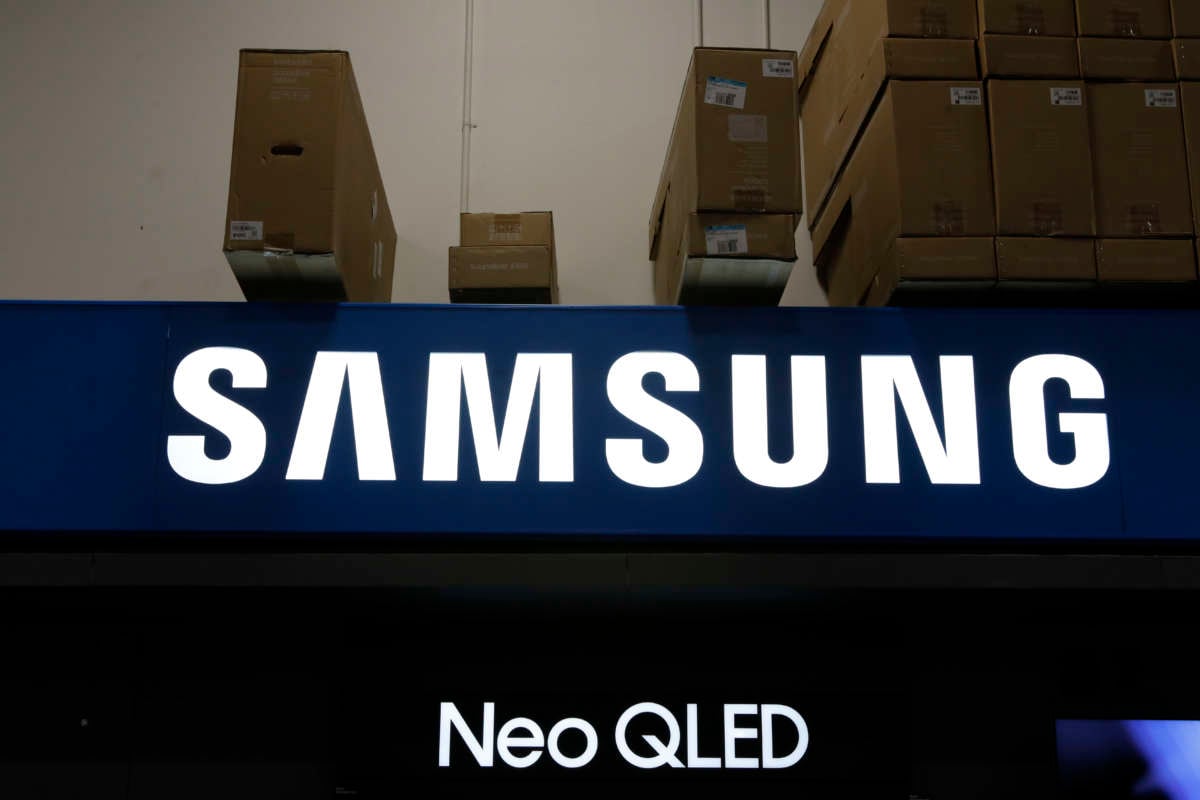During an ongoing global semiconductor shortage that has stifled smartphone and car companies alike, the communications and electronics sector spent 15.1% more on federal lobbying during the third quarter than the same period last year, bringing its 2021 total to $362.1 million. It was the largest lobbying spending increase experienced by any sector this quarter.
Semiconductors, or semiconductor microchips, are an essential component of electronic devices. Over the course of this year, industry demand for the chips has outstripped their supply, causing some chipmakers to deepen their U.S. investments.
In March, President Joe Biden called on Congress to invest $50 billion in semiconductor manufacturing and research. He received $133 million from the communications and electronics industry during the 2020 campaign cycle, making it the fourth highest spending sector to contribute to his campaign.
Tech company Samsung announced Tuesday it will build a semiconductor factory in Taylor, a city just outside of Austin, Texas. One of the world’s largest makers of electronic devices, the company also spent $2.9 million this year on federal lobbying. During the third quarter alone, the company spent $1.1 million — more than it has any other third quarter in its history.
The electronics manufacturing and equipment industry spent the most in the communications and electronics sector. Its industry groups have lobbied $135.1 million so far this year. The industry experienced its largest third quarter lobbying spend yet, spending $46.1 million — a nearly $10 million increase from the same period last year.
Other electronics giants moving to chip in include Intel, who in March announced it would build a pair of new factories in Arizona. Intel has spent $4.9 million on federal lobbying this year despite spending only $1 million this past quarter.
Taiwan Semiconductor Manufacturing began construction on an Arizona facility in June, and has spent $1.7 million on federal lobbying efforts this year — an over $200,000 increase compared to this period last year.
Earlier this month, Texas Instruments announced plans for new semiconductor plants in Sherman, Tex. The tech company has spent just over $1 million on lobbying efforts so far this year, tying with the Semiconductor Industry Association, a lobbying group that represents the United States semiconductor industry.
Amazon.com is the largest client lobbying in the communications and electronics industry, spending a total of $15.3 million during the first three quarters of 2021. The Seattle-based company, which produces its own line of semiconductor chips, spent over $5 million on federal lobbying during the third quarter alone.
The communications and electronics sector has contributed $20.6 million to members of Congress this year. Of that, nearly 73% went to Democrats and 27% went to Republicans. So far, the sector has given the most to Senate Majority Leader Chuck Schumer (D-NY), a total of $1.8 million. Sen. Schumer sponsored the United States Innovation and Competition Act, a bill that passed the Senate in June, which would invest $52 billion for domestic semiconductor manufacturing to help reduce U.S. reliance on foreign semiconductor producers.
Within the communications and electronics sector, clients from the telecom and internet industries spent record-high amounts on federal lobbying. Telecom services and equipment bested its previous third quarters numbers with $26.1 million, for a total of $81.5 million this year. The internet industry followed suit and added $23.2 million to its now $67.6 million 2021 federal lobbying total.
Trump is silencing political dissent. We appeal for your support.
Progressive nonprofits are the latest target caught in Trump’s crosshairs. With the aim of eliminating political opposition, Trump and his sycophants are working to curb government funding, constrain private foundations, and even cut tax-exempt status from organizations he dislikes.
We’re concerned, because Truthout is not immune to such bad-faith attacks.
We can only resist Trump’s attacks by cultivating a strong base of support. The right-wing mediasphere is funded comfortably by billionaire owners and venture capitalist philanthropists. At Truthout, we have you.
Truthout has launched a fundraiser, and we have only 24 hours left to raise $17,000. Please take a meaningful action in the fight against authoritarianism: make a one-time or monthly donation to Truthout. If you have the means, please dig deep.
